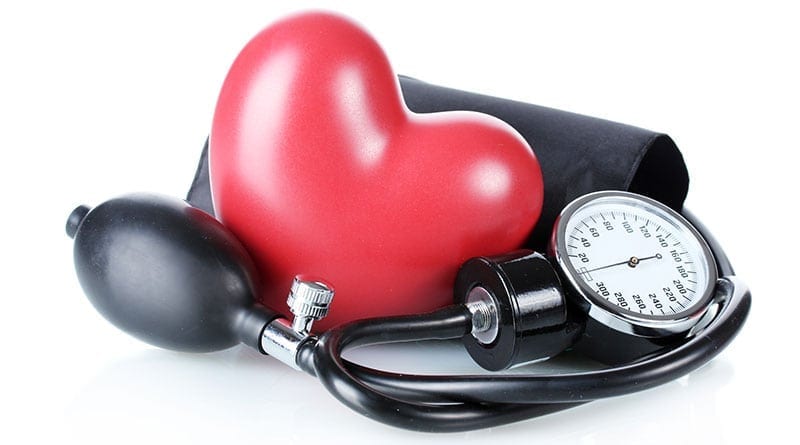What is Heart Failure?
This condition occurs when your heart loses the ability to function and pump as it should. Possible causes include diabetes, high blood pressure, heart disease, cardiomyopathy, and myocarditis as well as congenital heart defects, abnormal heart rhythms, obesity, sleep apnea, viral infections, and the use of certain medications. Genetics may also play a role. More than 5 million people in the United States have this condition. It is most often found in people over the age of 65. It may be referred to as diastolic heart failure, congestive heart failure or be defined by the right or left side where it occurs.
What Happens During Heart Failure?
The heart cannot pump enough blood throughout your body since it is unable to fill with enough blood and achieve the right level of force. It occurs slowly over time and the pumping action of your heart becomes progressively weaker. The condition may exist in the left, right, or both sides of your heart, although it occurs most often on the left side. While the heart is not working properly, it does not mean your heart has stopped working completely. Heart failure should be diagnosed and treated right away if suspected. Complications may include heart valve problems, arrhythmias, liver damage, shortness of breath, extreme fatigue and kidney damage.
Who Is At Risk for Heart Failure?
There is an increased risk for people over 65, those with uncontrolled hypertension and African-Americans. Men have a higher risk of developing the condition. Contributing conditions to this disease include high blood pressure, coronary artery disease, heart attacks, and diabetes. The leading cause of death in men and women is coronary artery disease. The arteries supplying blood to the heart harden, get stiff and narrow.
Reducing Risks Related to High Blood Pressure
Uncontrolled high blood pressure often leads to heart failure. When you have high blood pressure your heart works harder and grows larger. The goal is to reach a blood pressure level of 140/80 or below. Discuss your blood pressure number with your doctor and how you can lower it. Use an automated blood pressure monitor to check it yourself. Document your blood pressure and take the information to your physician. Take medications as prescribed and never run out of your medications. You need to report problems to your physician immediately.
Reducing Risks Related to Coronary Artery Disease and Heart Attack and Heart Failure
It is important to keep your cholesterol levels healthy to prevent coronary artery disease and heart attack. Avoid fried, fatty, salty, sugary and processed foods. Eat a well balanced diet that should be discussed and formulated with your health care provider. Your cholesterol levels should be tested regularly. This includes LDL (bad) cholesterol, triglycerides, and HDL (good) cholesterol. Talk to your health care team about the target range for each type and ways to stay within that range. Your doctor may refer you to a dietitian to learn more. Sometimes diet and exercise is not enough to keep levels controlled and medications such as statins may need to be added.
Reducing Risks Related to Diabetes
People with diabetes often have too much sugar in their blood for an extended period of time. These high blood sugar levels create damage to the blood vessels and heart. This weakens the heart and can lead to heart complications. Proper diabetes self-management can make a real difference to your cardiac risks. Work with a team of health care professionals to find out how to maintain healthier blood sugar levels. This may include changing your lifestyle habits and taking medications as prescribed by a doctor.
Signs and Symptoms of Heart Failure
There are signs and symptoms that could indicate a person is experiencing heart failure. Symptoms may include heart palpitations, feeling fatigued, loss of breath, weakness, coughing, inability to exercise or move around, nausea, irregular heartbeat, angina, and edema. Fluid and blood can back up into the lungs and start to build in the legs, feet, ankles, and abdomen. Swelling in these regions can be risky for people with diabetes who have neuropathy. Swelling can lead to weight gain, coughing, and/or frequent urination. Weight gain and inflammation are linked with diabetes and related complications. People with any of these symptoms should contact a doctor to find out if they have heart failure and get the proper treatment.
Getting a Diagnosis
Scheduling a physical examination with your doctor is the first step to getting a diagnosis. Prior to the exam, your doctor will have you complete a health history form that includes listing conditions that could be linked. They will also require a complete list of your medications, vitamins and supplements. Inquire about pre-exam restrictions and make a list of your symptoms to share with the doctor. During the exam, the doctor will listen to your heart and lungs as well as look for swelling in areas such as the abdomen, ankles, feet, legs, and veins in your neck. If the doctor believes there is a problem, several tests may be ordered. They could include tests to diagnose conditions related to heart disease as well as ruling out other causes of the symptoms you are experiencing. Tests to diagnose heart failure may include:
- A chest x-ray to show if your lungs have fluid or your heart is enlarged.
- An EKG or ECG (electrocardiogram) to determine the rate of your heartbeat, the thickness of the walls of your heart, and if you have had a heart attack.
- A BNP blood test to look for B-type natriuretic peptide, a hormone that can increase your risk.
Going to the Cardiologist
Based on the results of one or more of these tests, the doctor may refer you to a cardiologist for formal diagnosis and treatment. The cardiologist may perform other exams and tests such as:
- Use of a Holter monitor attached externally to your chest to record your heart rhythms during normal activities for 24 hours.
- An echocardiogram that creates an image of the heart using sound waves to find areas where there could be damage.
- A stress test done before, during, and after exercising to read your blood pressure.
- An EKG to find out how your heart pumps and responds to physical activity.
- Additional tests that may be ordered include cardiac computerized tomography (CT) scan, magnetic resonance imaging (MRI), coronary angiogram, and a myocardial biopsy.
Treating Heart Disease
Much like diabetes, there is no cure for heart failure. However, it can be controlled with proper treatment. The longer you have it the worse it becomes. The right treatment can improve your symptoms and prevent the condition from getting worse. Daily activities will become easier and the risk of emergency heart problems is reduced. Treatments typically include lifestyle modification and prescribing medications.
Lifestyle Habits
A healthy lifestyle can help all aspects of your health. Your health care team may recommend various lifestyle changes and refer you to a diabetes nurse educator, dietitian, physical therapist, and other professionals to get on the right track. They may also recommend checking your legs, feet, and ankles daily for swelling or irregularities that should be reported to your health care team immediately. You should weigh at home on the same scale daily and report fluctuations.
Losing Weight and Eating Right

Get Moving
Exercise for a minimum of a half hour daily. This can be done in segments of 5-15 minutes, 2 or 3 times each day. Try walking, swimming, or attending fitness classes to get started. Include a few minutes of strength training and stretching each day, such as weight lifting or using resistance bands. Exercise can reduce stress, which is also linked to heart problems. Other ways to minimize stress include meditating, deep breathing, Tai chi, yoga, and hobbies and social activities that make you happy.
Quit Bad Habits
Certain habits can worsen the risks associated with heart disease. Quit smoking and limit or eliminate your intake of alcohol to improve your heart health. If you have difficulty quitting bad habits, talk to your doctor to find out ways to kick the habits.
Medications for Treatment
Certain medications can help improve the symptoms. The medications that might be prescribed to treat heart failure include:
- Beta blockers to reduce your heart rate and lower your blood pressure.
- ACE inhibitors to reduce your blood pressure and minimize heart strain.
- Diuretics to get rid of fluid and inflammation throughout your body.
- A mineral supplement, especially for those who take diuretics and may be losing potassium and magnesium.
- Digoxin to strengthen your heartbeat so your heart can pump more blood.
- Statins to lower cholesterol levels.
- Potassium-sparing diuretics such as aldosterone antagonists that could help extend the lifespan of people with severe systolic heart failure.
- Inotropes, which are administered intravenously in a hospital to maintain blood pressure and improve heart pumping function.
- Nitrates to reduce heart pain.
People with severe heart failure may get a mechanical heart pump or be recommended for a heart transplant. Other advanced treatments may include coronary bypass surgery, heart valve repair or replacement, implantable cardioverter-defibrillators (ICDs), biventricular pacing, cardiac resynchronization therapy (CRT), and ventricular assist devices (VADs).
Maintaining Optimum Health
Chronic conditions such as diabetes and heart disease weaken your immune system, making you more susceptible to getting colds, flu, and pneumonia. Talk to your doctor about getting a flu shot and a pneumonia vaccine. Get treatment from your doctor right away if you have a cold or flu. If you have difficulty breathing, your doctor might order oxygen in a hospital or at your home. People with diabetes should test their blood sugar regularly and report irregularities to the doctor right away. If you experience fainting, rapid or irregular heartbeat, chest pain, severe loss of breath, and/or coughing up pink mucus, call 911 for help.
Knowing the signs and symptoms of heart failure can help you detect this condition in its earliest stages. Lifestyle modification and medications can reduce these symptoms, improve your quality of life, and extend your lifespan. Take heart and get diagnosed so you can live a fuller, happier life!














Leave A Comment